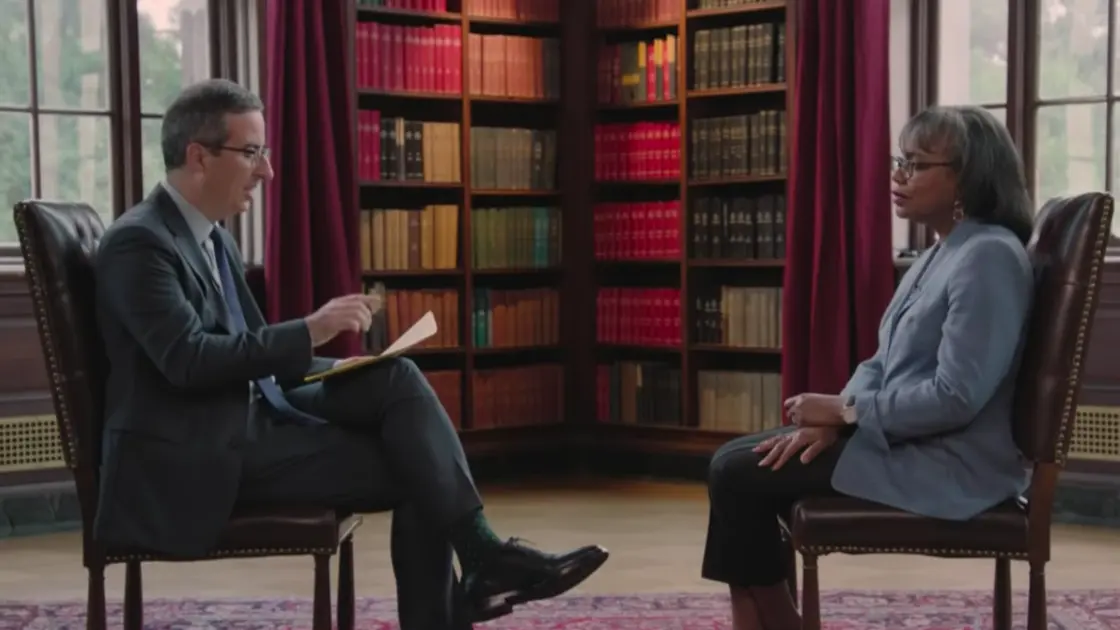
John Oliver and Anita Hill Take on Workplace Sexual Harassment
August 1, 2018
Workplace sexual harassment is a major problem, and local laws like the Stop Sexual Harassment in NYC Act are leading the fight
Genevieve Carlton, Ph.D
Workplace sexual harassment remains a major problem in 2018, even after decades of efforts to prevent and stop sexual harassment at work. On Last Week Tonight, John Oliver tackled the problem by looking back to the 1990s, a decade that vowed to end workplace sexual harassment.
As Oliver noted, the #MeToo movement and the current “national reckoning about sexual harassment” isn’t the first time a social movement challenged workplace sexual harassment. In the 1990s, record corporate sexual harassment settlements made headlines, while the 1992 election was termed the “Year of the Woman,” a title many have also applied to 2018.
And yet the national conversation about sexual harassment at work didn’t end the problem.
To break down what has changed––and what hasn’t––Oliver interviewed Anita Hill, who testified that she had been harassed by Supreme Court nominee Clarence Thomas during his 1991 Senate confirmation hearings. Today, Hill is a professor at Brandeis University.
During the interview, Professor Hill addressed men’s fears about being falsely accused with a sharp answer. Oliver asked, “We’ve seen a lot of men say that they are absolutely terrified to be alone with a woman now. Should they be scared?” Hill responded, “Not if they’re not harassers.”
And on the topic of false accusations, Hill took a strong position, noting how infrequently false accusations occur. “We don’t need to make rules around the things that rarely happen until we finish up making the rules around the rules that are happening regularly.”
Hill also had advice for men in the workplace. “We need you to step up and realize that, at this point in time, there are no innocent bystanders. If you are aware of something—you acknowledge it, you know it’s wrong, but you don’t do anything about it—it’s the same as participating in it.”
Watch Oliver’s segment below.
Anita Hill knows first hand how difficult it is for victims of sexual harassment to speak out. And while the legal situation has improved since 1991, there are significant limitations to federal sexual harassment laws. John Oliver pointed out during the segment that the EEOC, which handles sexual harassment claims at the federal level, only has jurisdiction over companies with at least 15 employees. This leaves many workers without federal sexual harassment protections.
Fortunately, New York state and New York City provide some of the strongest sexual harassment protections in the country. The Stop Sexual Harassment in NYC Act, for example, covers all public and private employees in the city, regardless of the size of the company. Previously, city laws only covered employers with four or more employees.
The Stop Sexual Harassment Act also gives employees longer to file a sexual harassment claim. While victims of sexual harassment once only had one year to bring a claim, under the Act they now have three years.
The Act mandates annual anti-harassment training that covers the definition of sexual harassment, what does and does not constitute sexual harassment, how bystanders can stop or prevent harassment, and how to bring a complaint. By training everyone on how to identify and stop sexual harassment, the Stop Sexual Harassment NYC Act will hopefully do more to protect employees than the 1980s and 1990s sexual harassment training videos Oliver featured on Last Week Tonight.
Victims of sexual harassment in New York can also protect their rights by contacting a sexual harassment lawyer for a free consultation. The strong sexual harassment NYC protections include back pay, compensatory damages, punitive damages, and other financial compensation for workplace sexual harassment.
You can also read more about your sexual harassment rights.